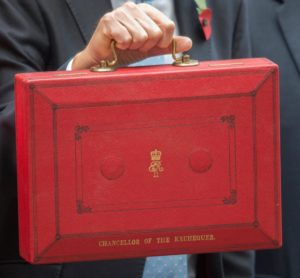We take a look at the future of the housing market after the 2018 Autumn Budget, including what this can mean for first-time buyers, as well as property in the capital.
The Chancellor has given the housing market a boost at the lower and of the scale, and done so with a view to putting right an emission he made last year. However, he has missed an opportunity to lift the property market across the board, leaving the more punitive stamp duty rates in place.
Positive for First-Time Buyers
Admittedly, the latest shift on shared ownership will help, as the Chancellor has decided that all first time buyers in shared ownership properties up to a value of £500,000 will not be subject to stamp duty. This will obviously help the market as first time buyers have long struggled to get on the ladder, and the fact that the Chancellor has made this retrospective, backdated to the last budget of 2017, suggests that they now realise that they made a mistake when not including this section of people, given a lot now share the burden of getting a property.
Added to this, there is now an additional £500m placed in the housing infrastructure fund, meaning an additional 650,000 homes will be built, every little helps! The government have also said that they will review planning regulations and make it easier for local councils to achieve housing targets. At present, the Government’s target sits at 300,000 new homes a year, a total they are still woefully short of, and until this target is reached the pressure on prices in the UK will continue to be an issue.

British Chancellor of the Exchequer Philip Hammond presents his red budget case to media outside Downing Street on Budget Day.
All of the above are positive for the housing market, and go a long way to recognising the need to boost supply and make it easier for new buyers to get on board. One thing the Chancellor missed out on was relaxing the more punitive rates at the top of the property market, as it still tends to find its way to the lower end, and that movement will give a boost to a market that has been static since Brexit issues started, and even losses in London where asking prices are now around 10-15% lower than they were before the Brexit vote.
The Future of Our Capital
London house prices will now also be impacted by an extra surcharge being levied on foreign investors above the existing SDLT rates in place. The Government will hold a consultation in January 2019 where they will examine whether or not to implement an extra SDLT with a surcharge of 1-2 per cent when they buy a property in the UK. The new tax could dissuade foreign individuals and firms from buying property, particularly in the most expensive parts of London. This would reduce competition among buyers and lower prices. Around 13 per cent of all new builds in London are bought by people outside the UK. This is good news for domestic buyers who are also being crowded out of the new booming markets of the North West, where above market growth rates continue unabated, to a degree driven by the wave of foreign buyers who are shifting focus from London as the low returns in the capital are beginning to bite.
Overall, this budget was a positive for the property market, particularly for UK residents. However, by not adjusting the higher SDLT rates, we believe Hammond has missed a key opportunity to bring comfort to UK homeowners who, at the top end of the market, are reluctant to move until they see what Brexit actually brings.



